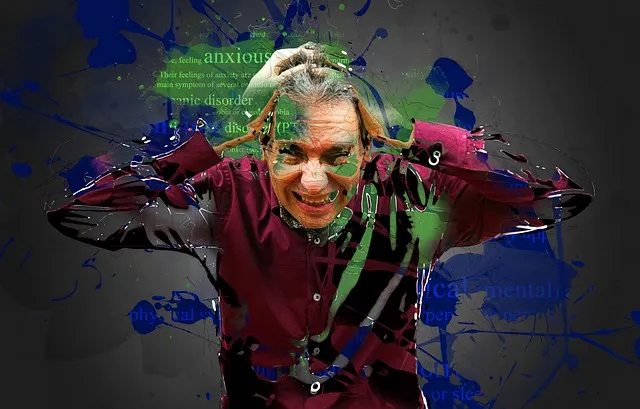The Kaiser Permanente behavioral health center Littleton focuses on holistic mental well-being, offering tailored treatments for stress, anxiety, and depression. Their burnout prevention strategies include stress reduction methods, mindfulness practices, group therapy, CBT, and healthy lifestyle changes. By addressing triggers, teaching coping skills, promoting compassion, and emphasizing present-moment awareness, the center empowers individuals to manage stress effectively and enhance overall mental well-being.
Stress management is a vital skill, and at the Kaiser Permanente Behavioral Health Center Littleton, we’re dedicated to teaching effective techniques. This comprehensive guide explores various strategies to combat stress, from understanding its causes and common triggers to powerful therapeutic approaches like Cognitive Behavioral Therapy (CBT). We delve into mindfulness practices, meditation, and lifestyle changes, offering practical tools for daily relief and long-term mental resilience.
- Kaiser Permanente Behavioral Health Center Littleton Overview
- Understanding Stress: Causes and Common Triggers
- Cognitive Behavioral Therapy Techniques for Stress Management
- Mindfulness and Meditation Practices for Daily Relief
- Lifestyle Changes for Enhanced Mental Resilience
Kaiser Permanente Behavioral Health Center Littleton Overview

The Kaiser Permanente Behavioral Health Center Littleton is a renowned facility dedicated to supporting mental well-being and offering specialized services for various behavioral health concerns. With a focus on holistic care, the center provides a safe space for individuals seeking help with stress management, anxiety disorders, depression, and more. The expert team at this location offers evidence-based treatments tailored to each patient’s unique needs, ensuring personalized support.
Here, individuals can access a range of programs designed to enhance resilience, promote self-care, and prevent burnout, especially prevalent among healthcare providers. The center’s Burnout Prevention Strategies for Healthcare Providers initiative emphasizes the importance of mental health education and provides effective Stress Reduction Methods. Through group therapy sessions, mindfulness practices, and individual counseling, patients learn valuable tools to navigate life’s challenges and cultivate long-term mental resilience.
Understanding Stress: Causes and Common Triggers

Stress is a complex response to various internal and external factors that impact our daily lives. The Kaiser Permanente behavioral health center Littleton emphasizes understanding the causes and triggers of stress as the first step in effective management. Common stressors can range from work-related pressures, financial concerns, and relationship issues to major life changes or traumatic events. Identifying these triggers is crucial for implementing personalized Stress Reduction Methods.
At the heart of stress management lies a comprehensive approach that often includes Social Skills Training within structured workshops organized by Stress Management Workshops Organization. By learning and practicing coping strategies, individuals can better navigate challenging situations, improve their emotional resilience, and enhance overall well-being. These techniques empower people to manage stress proactively rather than reacting impulsively to triggers.
Cognitive Behavioral Therapy Techniques for Stress Management

Cognitive Behavioral Therapy (CBT) is a powerful tool offered by Kaiser Permanente behavioral health center Littleton to combat stress and its associated challenges. CBT focuses on identifying and changing negative thought patterns and behaviors that contribute to heightened stress levels. By teaching individuals to recognize and challenge distorted thinking, this therapy empowers them to manage their emotions more effectively. For instance, it can help folks understand how they interpret and respond to stressful situations, enabling them to adapt healthier coping strategies.
This approach isn’t just about managing symptoms; it’s also a preventative measure for depression. Through CBT, individuals learn compassion cultivation practices that foster self-acceptance and empathy towards others. This shift in perspective can significantly impact overall mental well-being. Moreover, by understanding the connection between thoughts, feelings, and actions, people can make positive changes in their lives, improving not just stress management but also broader mental health policy analysis and advocacy efforts.
Mindfulness and Meditation Practices for Daily Relief

Mindfulness and meditation practices have emerged as powerful tools for managing stress, offered by many behavioral health centers, including Kaiser Permanente Littleton. Incorporating these ancient techniques into daily routines can provide substantial relief and enhance overall mental health awareness. The process encourages individuals to focus on the present moment, observing their thoughts without judgment, which helps to calm the mind and reduce anxious thoughts.
Regular meditation practice, even for a few minutes each day, has been linked to improved trauma support services and better stress management. It enables individuals to develop a greater sense of self-awareness, fostering an environment where negative stressors can be identified and managed more effectively. By cultivating mindfulness, people can navigate their daily lives with heightened awareness, leading to improved well-being and resilience.
Lifestyle Changes for Enhanced Mental Resilience

Adopting lifestyle changes is a powerful tool for building mental resilience and enhancing emotional well-being, as demonstrated by the expertise at Kaiser Permanente behavioral health center Littleton. This involves a holistic approach where individuals prioritize self-care practices such as regular exercise, balanced nutrition, and sufficient sleep. Engaging in physical activity releases endorphins, which naturally promote feelings of happiness and relaxation, thus reducing stress levels. A nutritious diet fuels both the body and mind, supporting optimal cognitive function and emotional stability. Adequate rest allows for mental restoration and improves one’s ability to cope with challenging situations.
Incorporating mindfulness practices like meditation or deep breathing exercises into daily routines can further strengthen resilience building. These techniques help individuals cultivate present-moment awareness, enabling them to manage stress effectively. By fostering emotional well-being promotion techniques, individuals become better equipped to navigate life’s challenges without burning out. This proactive approach not only enhances overall mental health but also encourages a more positive and balanced lifestyle.
Stress management techniques, as offered by the Kaiser Permanente Behavioral Health Center in Littleton, are essential tools for navigating life’s challenges. By understanding stress triggers, adopting cognitive behavioral therapy, mindfulness practices, and making positive lifestyle changes, individuals can enhance their mental resilience and overall well-being. Incorporating these strategies into daily routines can lead to a more balanced and fulfilling life, allowing folks to thrive amidst the hustle and bustle of modern living.






